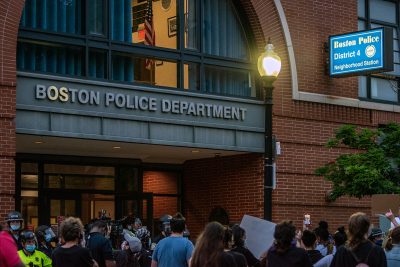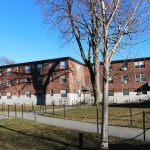The Boston Police Department will hire 15 mental health clinicians under the City’s resubmitted budget for the fiscal year 2021.

These new hirings were announced in a Boston City Council meeting on public safety and criminal justice held on Sept. 3.
The budget reallocates 20 percent, or $12 million, of the BPD’s overtime budget toward inclusion and equity efforts across departments, investing in community programs, economic development and housing.
Of the reallocations, $2 million will go toward supporting the new clinicians and mental health services within the department, according to the text of the budget.
Clinicians will respond to calls for psychiatric crises or other behavioral health issues, like substance abuse. City Councilor Annissa Essaibi-George said this will relieve the burden on officers to engage in behavioral health practices, which are often outside of their positions’ scope.
“It’s really not a police response that we often need in these cases,” Essaibi-George said. “When a resident calls 911, it’s a mental health response that we need.”
Essaibi-George said she has been working with the City Council and Rep. Ayanna Pressley, who was previously a city councilor, for the past four years to increase the number of mental health clinicians in the BPD.
Through their efforts, what began as a federal and state grant to fund two mental health clinicians became the Boston Emergency Services Team.
BEST is a network of mental health clinicians responding to mental health crises in Boston via the toll-free number, 1-800-981-4357, which is active all hours of the day.
The team operates under contract with the Boston Medical Center and in partnership with the BPD in a co-responder model. This means clinicians work with the BPD to receive and respond to mental health crisis calls.
The 15 new clinicians will join the current four members of the BEST Team for a total of 19 mental health clinicians on the team.
All clinicians must be licensed, master’s-level social workers who have been trained in clinical practice and mental health crisis response, Essaibi-George said.
Clinicians will also have completed a period of internship and a period of practice before getting their license, Danna Mauch, president of Massachusetts Association for Mental Health, said.
Essaibi-George said the positions have been posted but not yet filled.
Mauch said the new clinicians will provide “tremendous benefit” to the Boston residents they serve, particularly immigrants and residents of color who face exacerbated police violence and a heightened risk of developing mental health issues due to that trauma.
“We have long recognized that in the mental health field, racism is a risk factor for behavioral health conditions, that the enduring intergenerational effects of trauma from racism take their toll on people,” Mauch said. “This is an effort to put a service in place as an alternative to frontline police response.”
On June 12, Mayor Marty Walsh declared racism a public health crisis via an executive order. He resubmitted the fiscal budget for 2021 on June 22.
In his resubmitted budget, Walsh specifically addressed the executive order and broke down the allocation of funds to public health supports and community-based supports, as well as housing, economic and mental health supports.
Essaibi-George said the new clinicians will constitute an important change for the Boston community.
“Boston is at the forefront of changing practice and improving practice,” Essaibi-George said, “and making sure that we are able to provide the services that our residents need in order to have healthy and productive and safe lives.”














